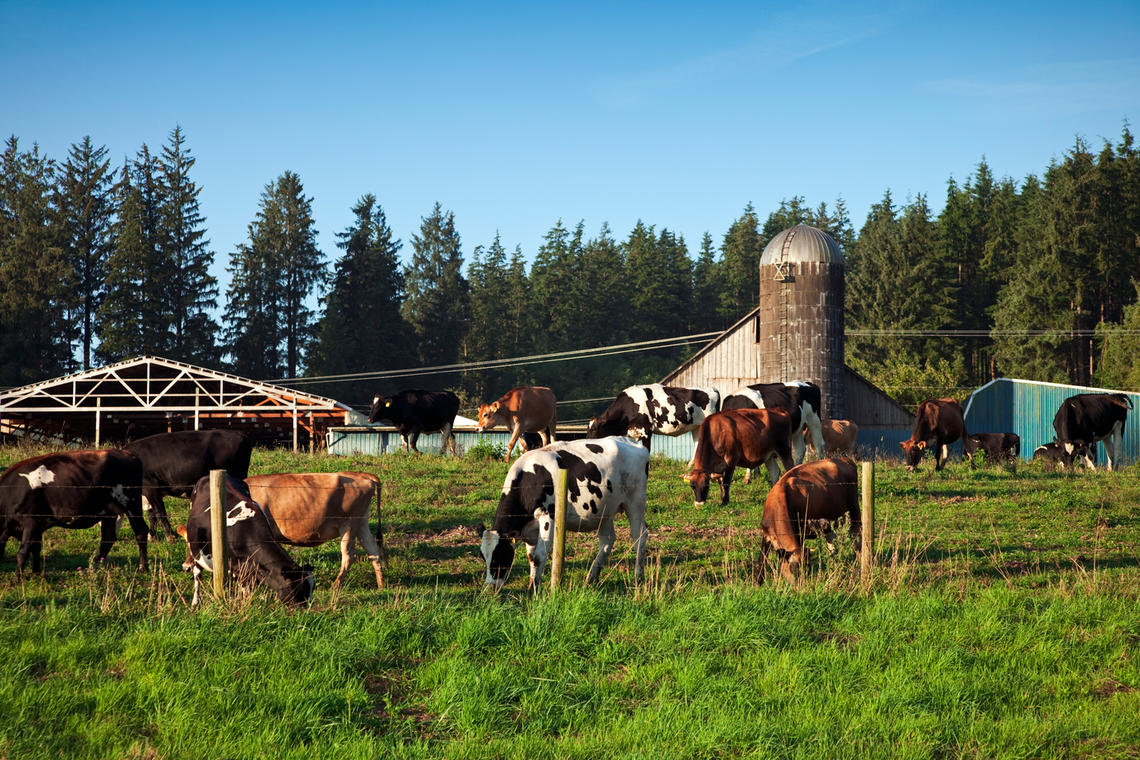
How will we balance our body’s bacteria to keep us healthy?

Kathy McCoy and her team are establishing the world’s largest germ-free facility within the International Microbiome Centre to advance our understanding of how germs influence disease and our microbiomes.
largest germ-free facility
The hub of the IMC’s research will be the germ-free facility, the world’s largest space dedicated to studying the microbiome’s role in immunity and disease.
We have recruited world-expert Kathy McCoy for her experience in establishing and operating germ-free facilities. McCoy will be supported by four new faculty members, each an accomplished investigator, as she leads research to understand the interaction between the microbiome and the immune system in order to prevent and treat illness.
The 10,000-square-foot facility will house thousands of mice under germ-free conditions, allowing our scientists to transplant specific microbiomes into germ-free animals to simulate the human microbiome.
Paired with our incredible imaging ability, this procedure will allow researchers to observe the behaviour of our microbiome in an environment free of other bacterial or viral contaminants, and how their introduction or removal shapes human health.
The germ-free facility will allow investigators, staff and students to develop more personalized therapies, treatments and preventative measures for people living with chronic diseases.
preventing future disease
Technology is the key driver of the IMC, enabling advanced study of the microbiome that has never been possible until now. By combining the world’s largest germ-free facility with incredible imaging technology already in place, we will witness the microbiome in action and use these discoveries to transform health.
These discoveries will allow for deeper understanding of how we prevent chronic diseases that impact the lives of babies to seniors. One such study is that of researcher Marie-Claire Arrieta, who along with her colleagues is studying the microbiomes of 1,000 babies born in Alberta. Their work is examining how the microbiome changes from the womb, through birth and the use of antibiotics, throughout their first five
years of life.
Precision medicine will be key to the study of each individual and their unique experiences, helping to gain insight around identifying causes of disease and ways to prevent conditions such as asthma and irritable bowel disease, and what treatments will be most effective within the microbiome.

Stopping disease before it starts is key to the work of researchers like Marie-Claire Arrietta, whose study into how the microbiome changes from birth will advance our knowledge of preventing disease in the first place.
looking beyond human disease
The microorganisms in the microbiome can threaten not only human health, but also agriculture, food supply and our ecosystems.
The IMC will enable better understanding of how our changing environment, agriculture and animals are affected by antibiotics — including how antibiotic-treated food impacts chronic disease in humans.
Food production for an ever-increasing global population is critical. The IMC will explore

Work in the IMC will also investigate how the health of livestock, agriculture, oil sands and pipelines are affected by bacteria, and how these factors in turn affect humans.
crop and livestock microbiomes to increase food productivity and nutritional quality, as well as how we can avoid spoiled food.
Finally, study of the microbiome extends to clean energy. Bacteria can erode pipelines and oil-sands infrastructure in Alberta. We are working with industry and government to study the environmental microbiome, in understanding how harmful emissions can be converted to clean energy.
together
we will explore the microbiome to reduce disease.
Chronic diseases like diabetes and cancer are expected to cause 75 per cent of deaths worldwide by 2020. It’s a global health epidemic that can be resolved only through research.
The Cumming School of Medicine’s International Microbiome Centre (IMC) will mobilize groundbreaking research into the prevention and treatment of chronic diseases by investigating the interactions of the trillions of bacteria in the human body that make up our microbiome.
The IMC will be an engine of innovation, seeking to create personalized therapies and crack the code in preventing chronic diseases before they start. Our investigations into the microbiome will spark translational discoveries that will benefit millions of Canadians.


